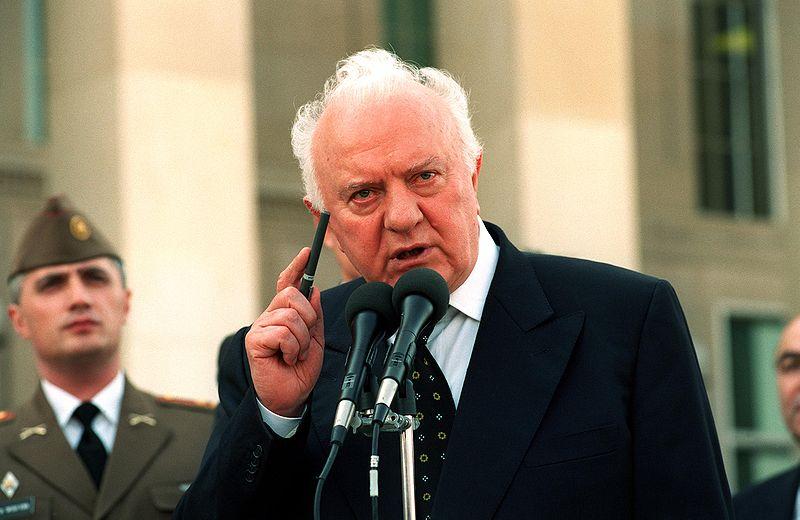For former Soviet foreign minister Eduard Shevardnadze, ending the Cold War was his greatest legacy
Former Georgian President Eduard Shevardnadze speaking to reporters at the US Pentagon on Oct. 5, 2001.
During the last gasps of the Soviet Union, there were a handful of big political players who seemed to appear on the cover Time magazine almost weekly — familiar names like Mikhail Gorbachev and Boris Yeltsin. And then there was Eduard Shevardnadze.
He was the urbane Soviet foreign minister who could work with Washington, the eloquent white-haired diplomat helping Mikhail Gorbachev navigate his attempts at reform. After the Soviet Union broke up, he became the president of the newly-independent Republic of Georgia — until he was forced out in a peaceful revolution.
Shevardnadze died on Monday at age 86.
BBC reporter Natalia Antelava, who covered Shevardnadze throughout his career, says Georgians today have mixed feelings about his political achievements. Many credit Shevardnadze with ending their country's civil war, but Georgians later lost confidence in his ability to lead the country away from the corruption and nepotism that marked the earlier communist era.
That eventually sparked the "Rose Revolution" of 2003, in which huge protests and a revolt by opposition parties in parliament forced Shevardnadze to step down as president.
By the time Antelava interviewed Shevardnadze after his resignation, she says the strain of the revolution was obvious.
"I went up to his mansion in Georgia, which he managed to keep after he was ousted from power — his presidential palace — and he had aged incredibly through the revolution," she says.
"I was very struck at how he wanted to avoid talking about the end of his government. Instead, what he really wanted to focus on was his legacy in the post-Soviet era — things that Georgians didn't care all that much about at that point.
"He talked about his role in ending the Cold War, and he talked about Afghanistan and his role in pulling Soviet troops out of Afghanistan. He talked about all his Western friends. [He spoke about] Germany, who very much credit him with the reunification of Germany, and his relationship with Reagan."
He also defended his record as a democratic leader against the charges of cronyism that many Georgians leveled:
But by 2003, Antelava says there was little fight left in the once-renowned diplomat.
"He did actually say, 'I'm very lonely these days,'" she remembers. "So to go from that glorious career as Soviet foreign minister to being an old lonely man, at the top of the hill overlooking a city that no longer wanted him or needed him, is quite a journey."
We want to hear your feedback so we can keep improving our website, theworld.org. Please fill out this quick survey and let us know your thoughts (your answers will be anonymous). Thanks for your time!
